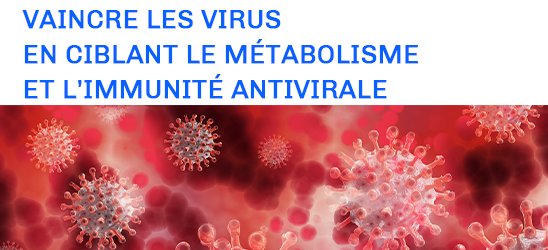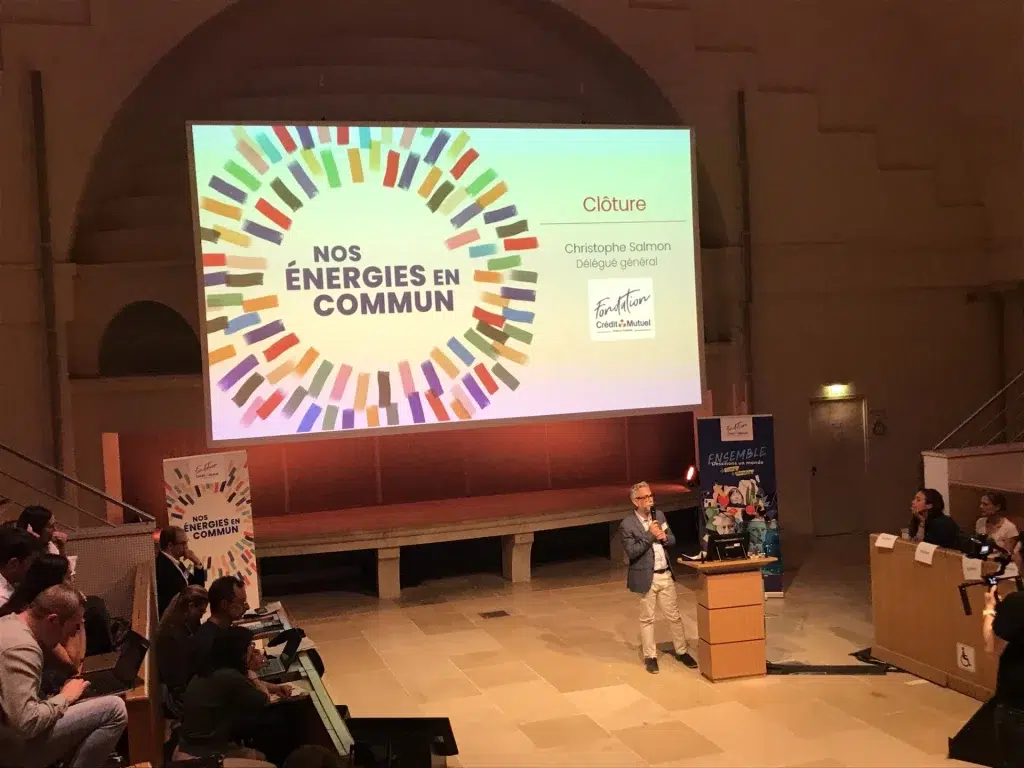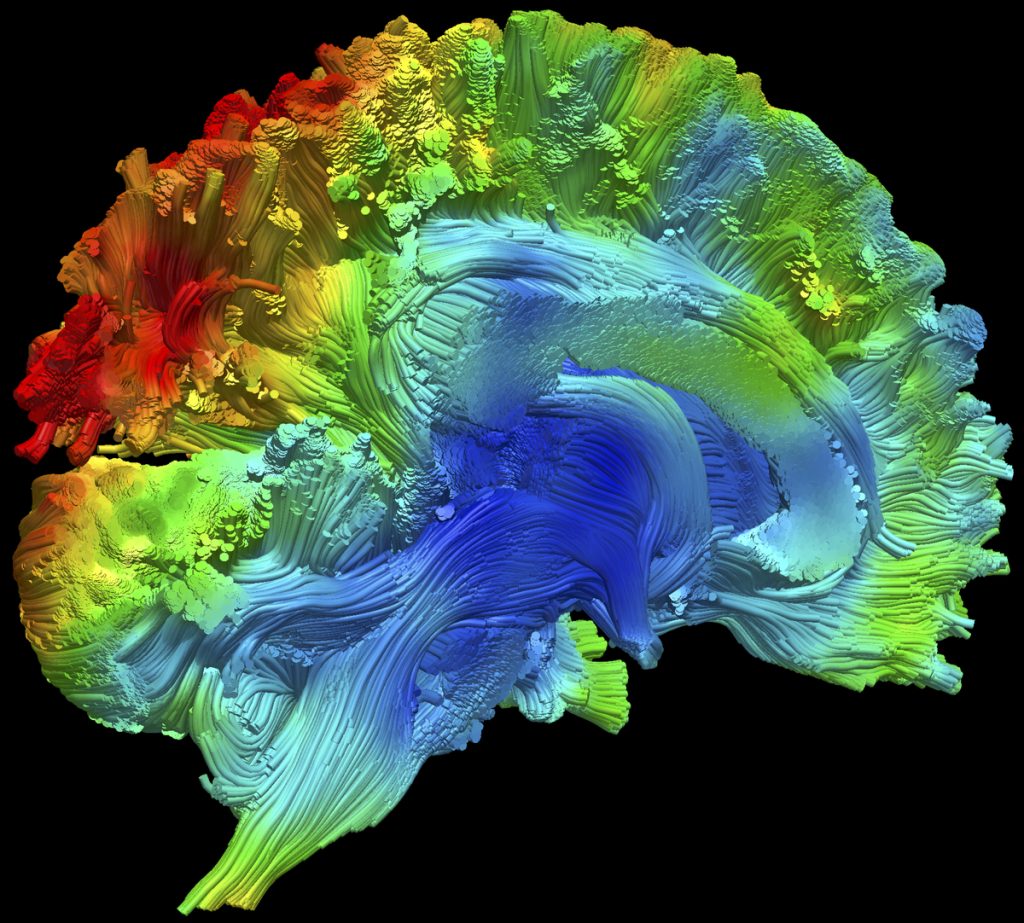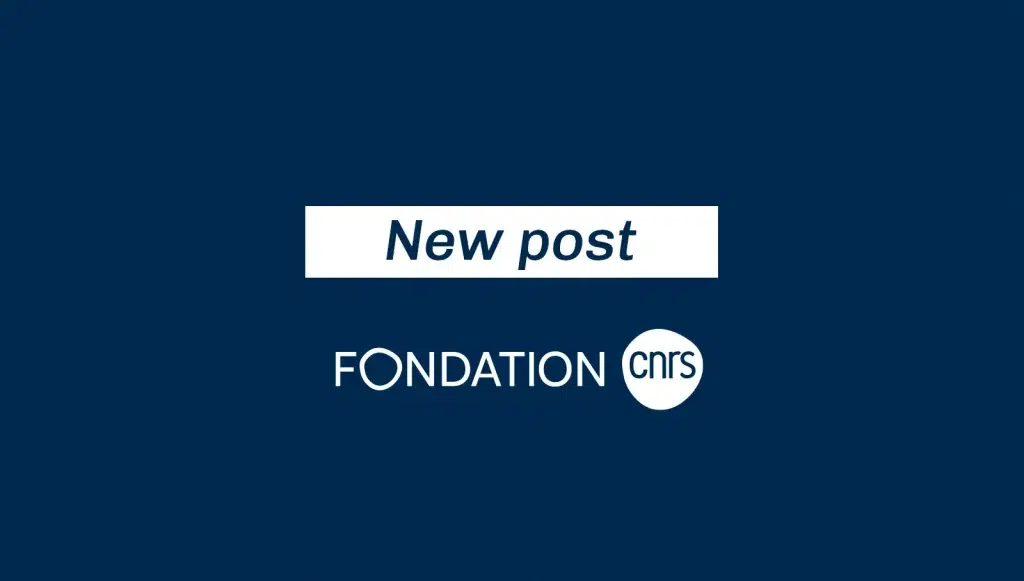Defeating viruses by targeting metabolism and antiviral immunity
Fluorescence microscopy image of a hamster cerebellum section infected with Nipah virus. The intensity of the light signal is proportional to the amount of virus present. On the right, infection is inhibited in the presence of a molecule that acts on cell metabolism.
From their windows, Pierre-Olivier Vidalain, CNRS Research Director, and his colleagues from the VIRIMI team led by Vincent Lotteau have a bird’s eye view of the P4 Jean Mérieux. This is the only level 4 public laboratory in France capable of handling highly pathogenic viruses such as the Ebola virus. Lyon is a city that counts when it comes to studying viruses, ” says Vincent Lotteau. International Center for Infectious Disease Research (CIRI) is a major player in this field,” explains Pierre-Olivier Vidalain. At the confluence of the Rhône and Saône rivers, CIRI is a joint unit of Inserm, Université Lyon 1, CNRS and ENS de Lyon, housing 24 research teams in virology, bacteriology and immunology.
The VIRIMI team, which stands for “Viral Infections, Metabolism and Immunity”, has been supported by the CNRS Foundation for the past two years. This team is interested in how viruses hijack the metabolism of the cells they infect to meet their needs for energy and the molecular building blocks essential to their multiplication. This virus-orchestrated hacking can deprive the cell of molecules essential to its survival or, on the contrary, activate certain metabolic functions, thus “overheating” the cellular machinery. In addition, these malfunctions can be perceived by the cell as stress, triggering the activation of an immune response to eliminate the virus. However, this response can become harmful to the patient if it is excessive and uncontrolled, or if it persists over time. These links between viral infection, cellular metabolism and immune response are at the heart of the VIRIMI team’s work.
First, the team’s scientists study the mechanisms by which viruses hijack cellular metabolism, and the consequences for the antiviral immune response. Drug molecules are then used to act on metabolism to stimulate antiviral defenses and make cells resistant to viruses. Unlike the majority of current antivirals, these innovative molecules act on the cell’s ability to resist the virus, rather than targeting the virus itself. The aim is threefold: to curb infection, limit its deleterious consequences on the body, and obtain broad-spectrum treatments that are effective against several viruses in the same family.
The VIRIMI team targets respiratory viruses such as influenza, SARS-CoV-2 or the highly pathogenic Nipah virus, in collaboration with the NITROVIRE team headed by CNRS researcher Cyrille Mathieu and Mustapha Si-Tahar, who heads the Centre d’Étude des Pathologies Respiratoires (CEPR) in Tours. The Nipah virus, found in bats in South-East Asia, regularly infects humans, causing encephalitis and haemorrhage that is often fatal. As such, it represents a threat and is closely monitored. One of the team’s projects, supported by the CNRS Foundation, aims to develop a molecule against this virus by targeting the cell’s energy metabolism. Recent results are particularly promising, and the team is seeking funding to continue this work (see illustration). Another part of the team focuses on the study of viruses that infect the liver and are responsible for hepatitis B, C and delta. By altering liver metabolism, these viruses promote the accumulation of lipids, leading to the development of steatosis and cirrhosis, a major risk factor for liver cancer. Treatments exist to eliminate the hepatitis C virus, as well as a protective vaccine and effective molecules to control the hepatitis B virus. However, there is no satisfactory therapeutic solution for the hepatitis delta virus. To meet this need, the team is studying molecules that modify liver metabolism and stimulate antiviral immunity. The aim is not only to block replication of the virus, but also to prevent the development of cirrhosis and liver cancer.
For the past few months, the team has been focusing on the study of a new molecule that blocks the spread of the hepatitis delta virus by an original mechanism. This project is being carried out in collaboration with two other teams led by David Durantel (HepVir Team, CIRI) and Yves Janin, CNRS Research Director and chemist at the Muséum National d’Histoire Naturelle. This consortium hopes to bring this molecule into the clinic within two years via the creation of a start-up, and has already received support from Inserm-Transfert and SATT (Société d’Accélération du Transfert de Technologies) Pulsalys.
In this context, the CNRS Foundation is important in several respects. It provides flexibility and responsiveness through a source of funding that enables preliminary experiments to be carried out to test hypotheses and initiate new projects. Without this support, these projects would not have been possible. In addition, research funding from the CNRS Foundation enables us to establish a privileged relationship with our donors. It’s an opportunity for the team to explain its work and respond to donors’ desire for direct contact with the researchers they support.




